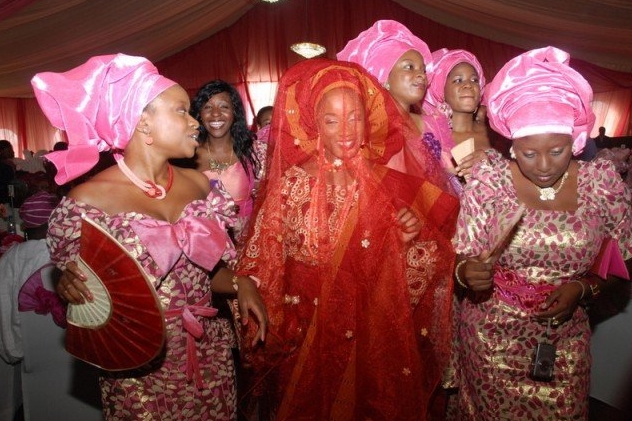
support@yorubalibrary.com
+2348073529208, 07038599574

In Yoruba culture, weddings have unique cultural meanings. One of the most emotionally charged and spiritually symbolic moments is known as “Ẹ̀kún Ìyàwó” — the Bride’s Cry. This act of weeping, which often occurs on or before the wedding day, is not merely a display of sadness; it holds important meanings in Yoruba tradition, emotion, and ancestral beliefs.
Ekun Iyawo (literally translated as "the bride’s cry") is a ceremonial weeping performed by the bride before her departure from her parental home to her husband’s house (when the said bride is going to "Ile Oko"). It is an expected and respected part of Yoruba tradition. Below are some of the reasons behind "Ekun Iyawo"
a) Gratitude – Appreciation for her upbringing.
b) Respect – Acknowledging the pain of separation from her family.
c) Transition – Moving from girlhood to womanhood.
Unlike Western weddings where brides often smile throughout, Yoruba tradition considers it improper for a bride to leave her home without shedding tears
THE PROCESS OF EKUN IYAWO
The crying ritual follows a structured process, often involving family members and traditional singers (oloori iyawo). Here’s how it typically unfolds:
1. Preparation Before Departure
a) The bride sits with her mother, aunts, and female relatives.
b) Songs are sung to erupt emotions, reminding her of her childhood and the love of her family.
2. The Weeping Ceremony
a) The bride begins crying, sometimes with dramatic lamentations.
b) She may recite poetic lines (oriki) about her family, thanking them and expressing sorrow.
Example of a lament:
"Mo dupe lowo iya mi, mo dupe lowo baba mi,
Ti won ko p'ami ni kekere..."
(I thank my mother, I thank my father)
(For they did not kill me in my childhood)
3. Family’s Response
a) Older women comfort her but also encourage her to go, reminding her that marriage is her destiny.
b) The groom’s family may offer small gifts ("idana") to console her.
4. Symbolic Resistance (Optional)
a) In some traditions, the bride pretends to resist leaving, and her brothers or uncles may carry her into the car or at the back of horse.
b) This act symbolizes that she is not leaving out of desperation but with dignity.
EXAMPLE OF EKUN IYAWO CHORUS:
Iya mo n lo,
E f'adura sin mi o,
Baba mo n lo,
E f'adura sin mi,
Kin n ma m'oya,
Kin n ma k'agbako ni ile oko
Kin n ma m'osi,
Kin n ma k'agbako ni ile oko
Iya mo n lo,
Baba mo n lo,
E f'adura sin mi.
Conclusion
Ekun Iyawo is more than just a dramatic display—it is a profound cultural expression of love, gratitude, and transition. Even as Yoruba weddings evolve, this tradition remains a powerful reminder of the emotional and communal ties that define Yoruba marital customs.

Learn about the Yoruba concept of Ìwà Pẹ̀lẹ́ (good…

Learn special praises for Divine Being and Creator…